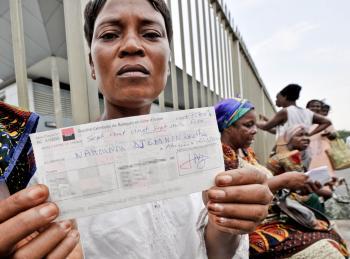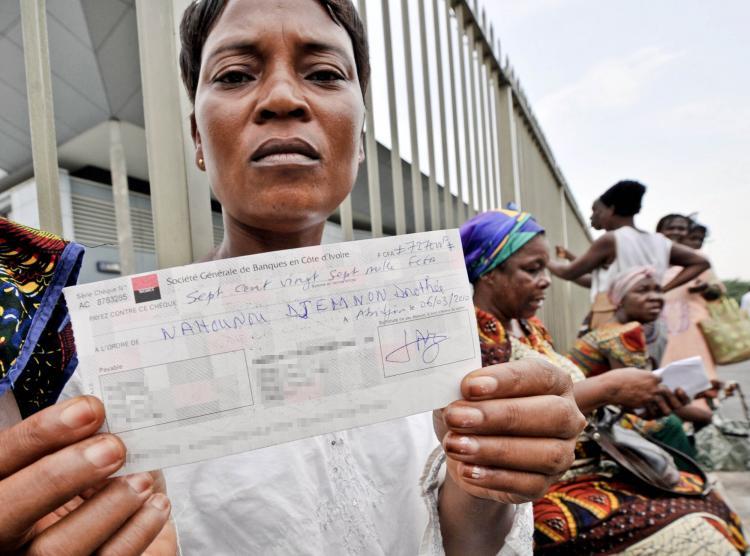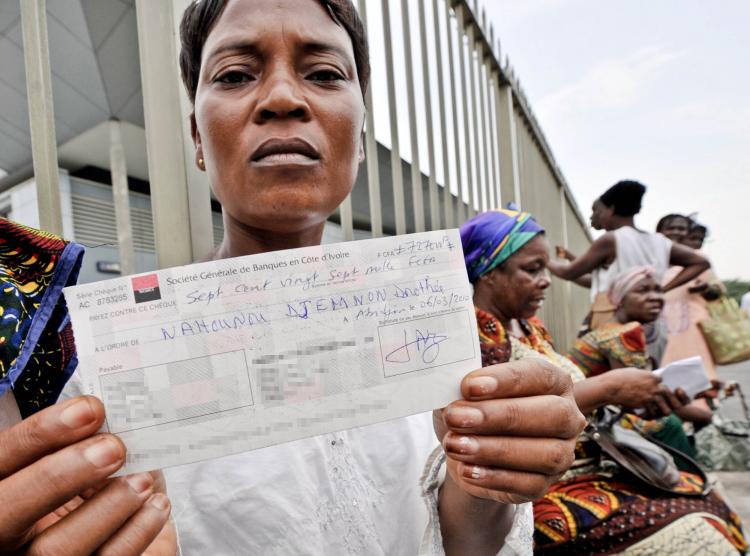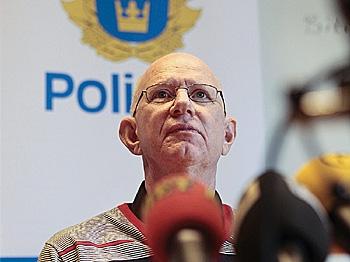An Amsterdam District Court has imposed a $1.3 million fine on multinational oil and metal trading company Trafigura for exporting harmful waste to the Ivory Coast.
One Trafigura employee received a fine of $32,260 and a suspended jail term for leading the delivery of the waste and concealing its harmful nature. And the captain of Probo Koala, the ship that transported the chemical waste, also received a suspended prison term for assisting in the delivery.
The company released a statement in response to the July 23 ruling saying that Trafigura was “disappointed” and “will study the court’s findings carefully with a view to appeal.”
Not Entirely Satisfied
Amnesty International said it welcomed the Dutch court’s decision given Trafigura´s denial of wrongdoing, but it is not entirely satisfied with the verdict.
Benedetta Lacey, Amnesty’s adviser who has visited the Ivory Coast and met victims of the dumping site said in a prompt statement following the court ruling, that the waste that was dumped had a “huge impact on the lives of tens of thousands of people.”
“While the ruling is a significant step forward, this is not the end of the story for those affected. There are unanswered questions about the impact that the waste may have had on people’s health, and the areas where the waste was dumped are yet to be fully decontaminated,” she said.
Price of Waste Handling
According to information provided by Trafigura, the Probo Koala was chartered by Trafigura. On July 2, 2006, the Probo Koala called at the port of Amsterdam to discharge a waste mixture of gasoline, water, and caustic soda. Disagreement with the port authorities over the price resulted in reloading the waste onto the Probo Koala. The ship departed on July 5.
On Aug. 19, Trafigura finally found an operator called Compagnie Tommy in the Ivory Coast to receive the waste material.
Probo Koala was able to unload the waste shipment at Abidjan, Ivory Coast, but the operator disposed of the waste at open-air sites around Abidjan.
People living nearby began suffering from a range of illnesses. Trafigura maintains that it “could not have foreseen these disgraceful actions, which were in flagrant breach of Tommy’s license and its undertakings to Trafigura.”
Criminal to Export Harmful Waste
In October 2006, about 1,000 Ivory Coast citizens sued Trafigura. The company reached an out-of-court settlement worth $160 million with the Ivory Coast government in February 2007, but further legal actions followed. In February 2008, Dutch prosecutors pressed criminal charges against Trafigura.
The decision of the Amsterdam court focused mainly on the legal aspects of events in Amsterdam and not the consequences of the waste dumping in Ivory Coast.
Concerning the harmful goods, Trafigura said the Dutch court ruling has “noted that there was limited risk to human health from these slops, and indeed no damage occurred in Amsterdam.”
One Trafigura employee received a fine of $32,260 and a suspended jail term for leading the delivery of the waste and concealing its harmful nature. And the captain of Probo Koala, the ship that transported the chemical waste, also received a suspended prison term for assisting in the delivery.
The company released a statement in response to the July 23 ruling saying that Trafigura was “disappointed” and “will study the court’s findings carefully with a view to appeal.”
Not Entirely Satisfied
Amnesty International said it welcomed the Dutch court’s decision given Trafigura´s denial of wrongdoing, but it is not entirely satisfied with the verdict.
Benedetta Lacey, Amnesty’s adviser who has visited the Ivory Coast and met victims of the dumping site said in a prompt statement following the court ruling, that the waste that was dumped had a “huge impact on the lives of tens of thousands of people.”
“While the ruling is a significant step forward, this is not the end of the story for those affected. There are unanswered questions about the impact that the waste may have had on people’s health, and the areas where the waste was dumped are yet to be fully decontaminated,” she said.
Price of Waste Handling
According to information provided by Trafigura, the Probo Koala was chartered by Trafigura. On July 2, 2006, the Probo Koala called at the port of Amsterdam to discharge a waste mixture of gasoline, water, and caustic soda. Disagreement with the port authorities over the price resulted in reloading the waste onto the Probo Koala. The ship departed on July 5.
On Aug. 19, Trafigura finally found an operator called Compagnie Tommy in the Ivory Coast to receive the waste material.
Probo Koala was able to unload the waste shipment at Abidjan, Ivory Coast, but the operator disposed of the waste at open-air sites around Abidjan.
People living nearby began suffering from a range of illnesses. Trafigura maintains that it “could not have foreseen these disgraceful actions, which were in flagrant breach of Tommy’s license and its undertakings to Trafigura.”
Criminal to Export Harmful Waste
In October 2006, about 1,000 Ivory Coast citizens sued Trafigura. The company reached an out-of-court settlement worth $160 million with the Ivory Coast government in February 2007, but further legal actions followed. In February 2008, Dutch prosecutors pressed criminal charges against Trafigura.
The decision of the Amsterdam court focused mainly on the legal aspects of events in Amsterdam and not the consequences of the waste dumping in Ivory Coast.
Concerning the harmful goods, Trafigura said the Dutch court ruling has “noted that there was limited risk to human health from these slops, and indeed no damage occurred in Amsterdam.”




